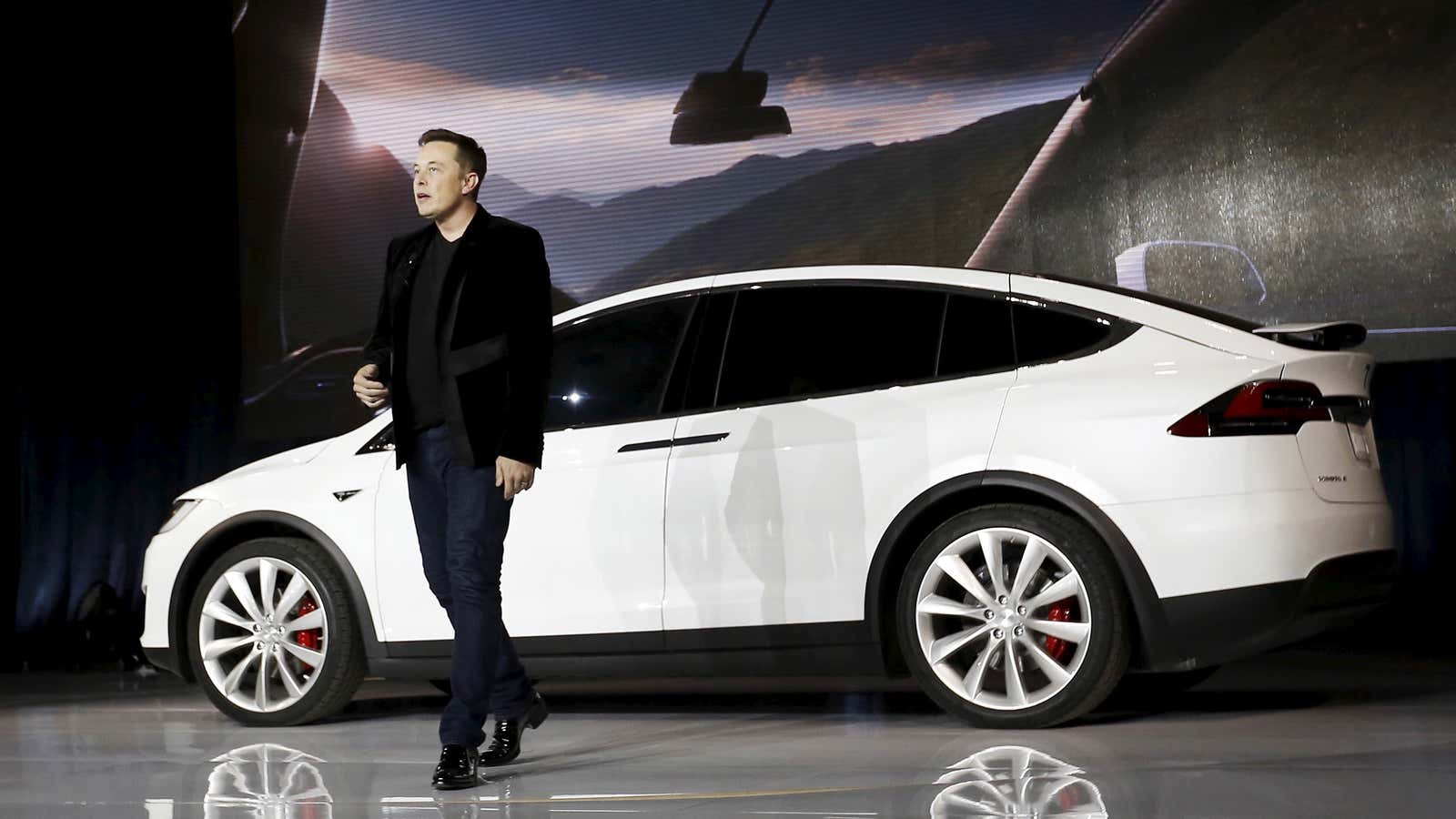Tesla fans in India have reason to rejoice.
Throughout 2017, Tesla plans to begin selling its electric cars in a string of new markets outside the US. One month into the year, the company has already launched in Portugal and Taiwan. It has unveiled plans to roll out its cars in New Zealand, South Korea, and the United Arab Emirates. However, there was no mention of India—until now.
Responding to a Twitter user’s question about Tesla’s India launch date, Musk pegged it at summer 2017.
When the Tesla Model 3 was unveiled on March 31, 2016, founder and chief executive Musk announced that the carmaker opened up orders to residents of India, Brazil, South Africa, South Korea, New Zealand, Singapore, and Ireland as well. The offer caught the fancy of India’s startup bigwigs like venture capitalist Mahesh Murthy and Paytm founder Vijay Shekhar Sharma, who were among over 115,000 Tesla enthusiasts from around the world who all forked over $1,000 to reserve a car to be delivered later.
The reservations were made in the absence of an official India debut date for the four-door sedan. At the time, there was no word on the price either. It will presumably cost well over double the US retail price of $35,000 (Rs23.4 lakh) considering that India levies an around 125% duty on imported vehicles to protect domestic manufacturers.
While India is poised to become the world’s third-largest auto market by 2020, the electric-car market remains small. More than 95% of the electric vehicles on the roads are low-speed electric scooters, industry lobby group Society of Manufacturers of Electric Vehicles claims. Tesla’s environmentally friendly cars could face less resistance than fuel-run cars since it helps the government’s vision of making all vehicles in India electric by 2030. Tesla entering the market “will not prop up sales of electric vehicles in India, but it will create an aura that will augur well for the electric vehicles industry,” Abdul Majeed, partner and national auto practice leader at PricewaterhouseCoopers, told Mint.
In Oct. 2015, Tesla shared plans for opening a “gigafactory” to mass-produce lithium-ion batteries—known for their efficiency in recharging and storing energy—in India. After targeting rural electrification with solar energy, Musk could help ease urban India’s pollution woes next. The burgeoning air pollution, which kills 1.2 million people each year, can likely be partly countered by swapping out gas-guzzling vehicles for electric ones.
To make its electric cars a reality in India within the short time-frame, Tesla needs to seriously ramp up efforts in setting up dealerships and service centers—both of which are currently non-existent. As for battery charging, the company has vowed to install a cross-country network of superchargers.
Tesla should also think long and hard before introducing autopilot, the much-hyped self-driving capability in all recent Tesla models, in a country with poor infrastructure, where deplorable driving skills rule, and pedestrians treat the road as one with the sidewalk.
